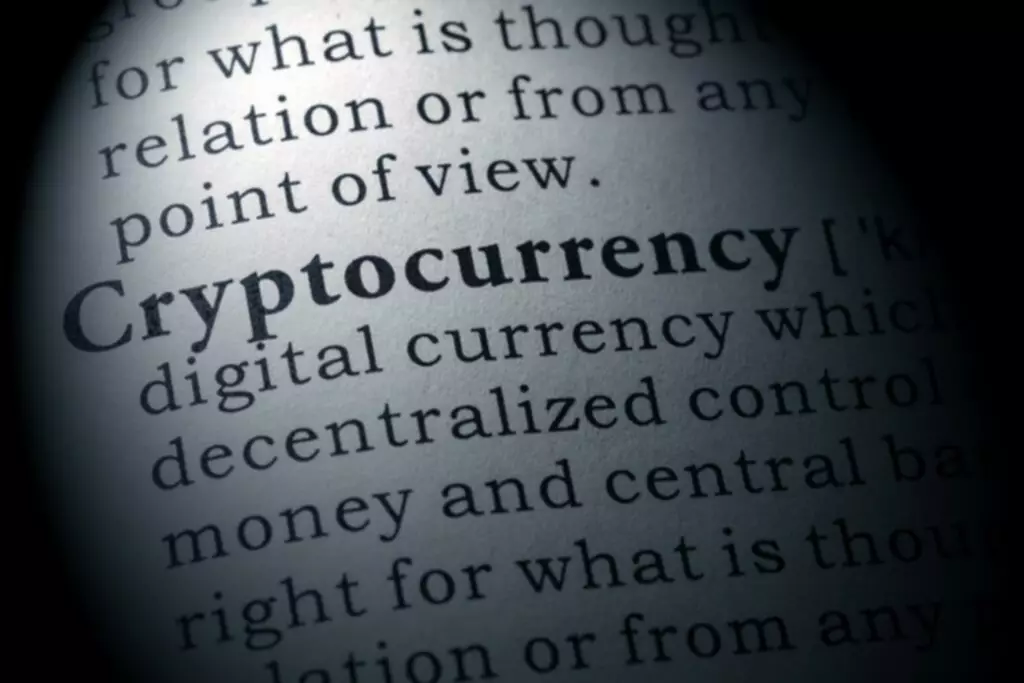Содержание
Pursuant to Regulatory Notice Michigan is requiring online filings of Regulation D and Unit Investment Trust through the North American Securities Administrators Association’s electronic filing depository system. The EFD website also enables the public to search and view, free of charge, filings made through EFD with state securities regulators. Crypto is a polarizing topic, with some insisting that it is the future, others distrusting it as a Ponzi-type pump and dump, and many more who have no understanding of what it is at all. World governments have traditionally been reluctant to adopt crypto because they see it as a threat to their central banks and control over their fiat currencies, but approaches to regulation vary.

If a broker-dealer restricts its transactions to the national securities exchanges of which it is a member and meets certain other conditions, it may be required only to be a member of those exchanges. If a broker-dealer effects securities transactions other than on a national securities exchange of which it is a member, however, including any over-the-counter business, it must become a member of FINRA, unless it qualifies for the exemption in Rule 15b9-1. FINRA’s webpage at provides detailed information on the FINRA membership process. You may also wish to consult the web pages of the individual exchanges for additional information. FINRA is a non-governmental, self-regulatory organization that enforces various rules governing the operations and conduct of brokers and broker-dealer firms in the United States. FINRA oversees around 3,400 securities firms with about 150,000 branch offices.
What Challenges Do Firms Face In Regard To Finra Trade And Communications Surveillance?
Our total survey population, or universe, consisted of 11,210 banks. Underwritten or distributed by the bank’s subsidiary or affiliate. Reviewed each of the instances cited to provide additional detail. Number of banks shown differs from the number, 11,210, shown in app. Meet conditions similar to those required of Section 20 subsidiaries. Would provide a more effective and efficient regulatory structure.
Statutes, common law, and federal regulations all govern the conduct of securities firms and their representatives. Securities firms must register with the Financial Industry Regulatory Authority . FINRA is a self-regulated organization that protects investors by ensuring that the securities industry operates honestly and fairly. An SRO is an organization that has power to create and enforce industry regulations on its own. This means that FINRA has the authority to create and enforce its rules on securities firms that register with FINRA. A broker-dealer is a securities firm that must register with FINRA.
In review: governing rules for IPOs in Brazil – Lexology
In review: governing rules for IPOs in Brazil.
Posted: Wed, 07 Sep 2022 07:00:00 GMT [source]
Ownership, retirement, insurance, and estate planning–is unregulated. Accordance with generally accepted government auditing standards. Form U10 — Test Enrollment Services System went live April 2017 as a replacement for the Form U10 process.
What’s Finra?
Meanwhile, the SEC can also discipline advisors, brokers and others. But the SEC’s scope extends well beyond this, and it’s in charge of regulating the bulk of the U.S. securities industry and the financial markets. FINRA’s BrokerCheck tool allows investors to verify whether a person or firm is legally authorized to sell securities, as well as whether they’re permitted to offer investment advice. It also maintains a record of customer complaints or enforcement actions against registered brokers, including those that have been barred. Before it begins doing business, a broker-dealer must become a member of an SRO. SROs assist the SEC in regulating the activities of broker-dealers.
Regulates the organization of companies investing, reinvesting, and trading in securities, including those offering their own securities. Applies to the secondary market to prevent fraud in the trading of existing securities between investors. Isparate data not only impacts the time it takes for firms to respond to potential instances of misconduct or market manipulation but it also prevents them from getting a holistic view of their trading operations.
The Registration Section also regulates the sale of all public and private securities offerings under the Tennessee Securities Act of 1980. Applications for securities product registration are submitted by companies, and if there are concerns or questions about the applicant’s information or unexplained gaps in the information, we will address those directly with the applicant. The applicant will not become registered until all issues are determined to meet the requirements of the Tennessee Securities Act of 1980.

December 2020, a securities dealer was censured and fined $1,000,000 for failure to establish and maintain a supervisory system. Georgia Secretary of State Brad Raffensperger’s Securities Division kicked off its high school financial literacy and investor education program… The Professional Licensing Boards Division of the Secretary of State’s Office provides administrative support to the 42 licensing boards housed with our agency. The Securities Division of the Office of the Secretary of State is charged with the implementation and enforcement of the Georgia Uniform Securities Act of 2008. All Georgia public records are available for inspection and copying unless they are specifically exempted from disclosure under the law. The Georgia Secretary of State oversees voting, tracks annual corporate filings, grants professional licenses, and oversees the state’s securities’ market.
Can A Clearing Firm Be Liable For Losses In An Investment Account?
You can obtain copies of Form U-4, as well as information on securities qualification examinations, from an SRO. FINRA’s website at contains detailed information and guidance for individuals who wish to obtain a series license through FINRA. Also note that individual states have their own licensing and registration requirements, so you should consult with the applicable state securities regulators for further information. The Financial Industry Regulatory Authority is an independent, nongovernmental organization that writes and enforces the rules governing registered brokers and broker-dealer firms in the United States.
A reasonable estimate of time to register a broker-dealer is three to six months from first filing with the NASD, although in some cases the process may take less than three months or more than a year. There is no separate fee for registering a broker-dealer with the SEC. Build a custom email digest by following topics, people, and firms published on JD Supra. Professional participant in securities market who carries out dealer activity shall be called dealer. In 1987, the United States Supreme Court ruled in Shearson/American Express Inc. v. McMahon that clauses mandating arbitration for disputes under the Securities Exchange Act of 1934 were enforceable. Three years later, it overturned Wilko completely in Rodriguez de Quijas v. Shearson/American Express Inc., extending the arbitration requirement to disputes under the Securities Act of 1933.
Provisions at the time that a bona fide subsidiary begins operations. Equal protection for all investors and reduces regulatory costs. Investment products on the premises of insured banking institutions.
- On the other hand, the RIA is held to a fiduciary standard in keeping with its duties to provide ongoing advice and monitoring.
- Advertising considerations may impact how and where products appear on this site but do not affect any editorial decisions, such as which products we write about and how we evaluate them.
- Effecting transactions in securities sold to “qualified institutional buyers.”
- The volatility alone in these coins was showcased this past weekend, with Bitcoin suddenly plunging over 25% from nearly $57,000 to just over $42,000 per unit.
- However, Exchange Act Rule 11d1-2 permits a broker-dealer to extend credit to a customer on newly sold mutual fund shares and variable insurance product units after the customer has owned the shares or units for 30 days.
- However, unlike the SEC, FINRA does not have the power to bring criminal actions against violators.
- And accountability of the federal government for the American people.
The complaint claims losses of approximately $2.5 million and that Henley essentially allowed Mr. Incorvia’s Ponzi scheme to flourish since about the time he joined Henley in 2006. Mr. Incorvia operated his Ponzi scheme out of this Jefferson entity housed right inside a Henley office, soliciting investor funds away from investor accounts at Henley to be invested directly into private “alternative” (i.e., fictitious) investments with Jefferson. Mr. Incorvia’s recent passing is what caused the Ponzi scheme to unravel. A Henley executive named in the complaint has further admitted to the existence of numerous other Henley customers who are only just discovering that they have been victimized as well. FINRA registered brokers must complete annual educational requirements. They can face disciplinary action if they are not in compliance with FINRA’s rules.
Finra Vs The Sec: What’s The Difference?
On the other hand, persons transacting business only in certain “exempted securities,” as defined in Section 3 of the Act, do not have to register under Section 15, but may have to register under other provisions of the Act. For example, some broker-dealers of government securities, which are “exempted securities,” must register as government securities brokers or dealers under Section 15C of the Act, as described in Part II.E, below. There is no intrastate exception from registration for municipal securities dealers or government securities brokers and dealers.

It was established in July 2007 through the merger of the National Association of Securities Dealers and the regulatory operations of the New York Stock Exchange. Robin Hartill is a Certified Financial Planner who writes about money management, investing, and retirement planning. Robin currently leads The Penny Hoarder’s personal finance advice column, “Dear Penny.” Through this platform, Robin answers the questions of readers from across the United States. She decodes industry jargon, making complicated finance topics like paying taxes, managing a portfolio, and boosting a credit score easy to understand. When you have an issue with your broker or brokerage firm, you can turn to FINRA to file a complaint, which FINRA will then investigate. “Our whole mission is investor protection and market integrity,” says Gerri Walsh, senior vice president of Investor Education at FINRA.
Acts, Orders & Rules
Still, FINRA and the SEC work together in examining broker practices, sharing market surveillance information, and teaming up on enforcement actions. One way to see it is that FINRA primarily deals with the human aspect of investing, focusing on the way brokers do business with the public. It ensures that brokers are up to code with its registration process and audits, and assists the public by receiving complaints and offering an arbitration forum. 12 When a broker-dealer is a member of more than one SRO, the SEC designates the SRO responsible for examining such broker-dealer for compliance with financial responsibility rules (the “designated examining authority”). 5 In addition, Rule 11Ac1-3 requires broker-dealers to inform their customers, upon opening a new account and annually thereafter, of their policies regarding payment for order flow and for determining where to route a customer’s order. Section 11 of the Act generally prohibits a broker-dealer that participates in the distribution of a new issue of securities from extending credit to customers in connection with the new issue during the distribution period and for 30 days thereafter.

Generally, every partner, officer, director, or employee of a broker-dealer must be fingerprinted and submit his or her fingerprints to the U.S. A broker-dealer claiming an exemption must comply with the notice requirements of Rule 17f-2. Broker-dealers What is Compliance for brokers may obtain fingerprint cards from their SRO and should submit completed fingerprint cards to the SRO for forwarding to the FBI on behalf of the Attorney General. A broker-dealer also has an obligation to determine customer-specific suitability.
Georgia Securities Division
Applies to the primary market to ensure transparency in documents and financial statements to help investors make informed decisions. A firm’s ability to distinguish between clear signals of wrongdoing and simply ‘noise’ within the trading environment makes it even more challenging for firms to comply with FINRA market manipulation rules. Many trade surveillance systems find it difficult to distinguish between false results (or “false positives”) and instances that actually warrant an investigation.
It was found that the firm’s system for monitoring trading was not reasonably designed to detect potentially manipulative trading. Under FINRA Rule 5210, “Publication of Transactions and Quotations”, FINRA prohibits the publication of any transaction, buy or sell, unless it is believed that the transaction is a bona fide purchase or sale. Additionally, a member cannot quote a bid or ask price for a security unless it too is considered a bona fide bid or ask. Being responsible for ensuring membership from firms, which are not under the Municipal Securities Rulemaking Board and other self-regulating organizations. Learn about the Financial Industry Regulatory Authority, or FINRA, its function, and the scope of its rules, in this week’s Data Protection 101, our series on the fundamentals of information security.
FINRA has enforcement powers over the brokers and firms it regulates. This includes the power to levy fines and sanctions against those who violate its rules. These sanctions can include suspensions and even debarments from the industry in some cases. Financial Industry Regulatory Authority, or FINRA, is a self-regulatory organization authorized to regulate U.S. stockbrokers and broker-dealer firms. Brokers must be registered with FINRA in order to execute trades on behalf of their clients. The clear benefit of FINRA is that it discourages fraud among financial institutions.
Securities Division
A registered representative is a financial professional who works with clients who are trading investments such as stocks and bonds. A self-regulatory organization is able to create and enforce industry regulations https://xcritical.com/ and standards by itself. Investopedia requires writers to use primary sources to support their work. These include white papers, government data, original reporting, and interviews with industry experts.
FINRA is the Independent Financial Industry Regulatory Association. It creates and enforces the rules that govern U.S. registered brokers and broker-dealers. The Financial Industry Regulatory Authority writes and enforces rules that govern registered brokers and broker-dealer firms in the United States. The Securities and Exchange Commission is a U.S. government agency created by Congress to regulate the securities markets and protect investors.
Observe rules concerning maximum value of gifts made to clients and political contributions. Holistic surveillance solution that delivers simple, effective and efficient supervisory controls. The platform brings together multidimensional data on a single, flexible platform with rich reporting, automated workflows and analytics that identify suspicious activity, quickly. Widespread use of new communications, and in many cases unconventional methods, such as external apps, makes surveillance even more difficult for the firms. Below sets out a few examples, however as many firms operate in different manners, additional challenges may present themselves, which will also need to be accounted for.
You should not rely on this guide without referring to the actual statutes, rules, regulations, and interpretations. The bank exceptions and exemptions only apply to banks, and not to related entities. It is important to note that exceptions applicable to banks under the Exchange Act, as amended by the GLBA, are not applicable to other entities, including bank subsidiaries and affiliates, that are not themselves banks.

